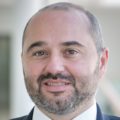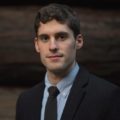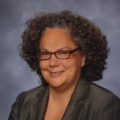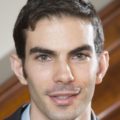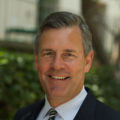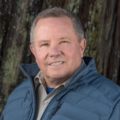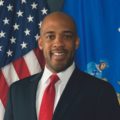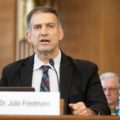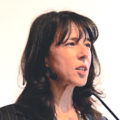If you would like to suggest a speaker or session topic, please email Jennifer Weiss at [email protected].
NACW 2021 Virtual Conference Program
Times are listed in Pacific Daylight Time (UTC-7)

Presented by the Climate Action Reserve
Mexico’s Compliance and Voluntary Carbon Markets: a Two-Part Session
In 2020, Mexico launched its national Emissions Trading Scheme and Mexico’s Secretary of Environment worked with the World Bank’s Partnership for Market Readiness to develop offset protocols for consideration to use in the compliance market. In the past year over 50 forest carbon projects in Mexico have been listed on the Reserve’s voluntary registry, and the Reserve has launched an update to its Mexico ODS/Halocarbon Protocol. In part one, learn how the compliance program is operating, and in part two, learn about growing opportunities in the voluntary market and expectations for how the voluntary market will interact with the compliance market.
Part 1: Advances and Expectations for Mexico’s ETS
Date: April 22
Time: 11am-12pm
- Session and panel introductions (Eduardo Piquero, Director, MexiCO2)
- SEMARNAT (pending confirmation): Advances in the development of the ETS, the inclusion of offsets, and opportunities for early action
- Development of 3 offset protocols and verification program rules for consideration (Iván Hernández, PMR)
- Forestry carbon project opportunities and ways CONAFOR is supporting project development (Mariana Martinez Leal, CONAFOR)
- Compliance program design for inclusion of the forest sector (Teresa Tattersfield, WRI Mexico)
- Compliance entity perspective (José Ramón Ardavín Ituarte, CESPEDES)
- Q&A

Presented by CaliforniaCarbon.info
The investment opportunity in carbon assets is steadily becoming recognized. We’ve seen huge inflows of interest and inquiries from pure financial players. Whether it’s investing in carbon as an asset class (CCAs or EUAs), investing in projects that generate carbon credits (Offsets or Clean Fuels Standard projects), or even using carbon prices to assess existing holdings – and their upcoming ‘carbon liabilities’.
Our research shows these trends in increasing investor participation, and our countless market conversations have shed light on the motives and portfolio strategy of these investors. Drawing on our market-leading price forecasts and specialist knowledge, this session will evaluate the North American carbon investment opportunities and light the path to a well-structured NA carbon portfolio, all set for this decade of opportunity.
These are regulatory driven markets, and pen-stroke is the critical risk type to understand. Our experts and panelists will give you as much regulatory insight as is possible in rating these opportunities. This session will span across the North American carbon programs: WCI, RGGI, both Compliance and Voluntary Offsets, and Clean Fuels Standards.

Presented by Latham & Watkins LLP
The ability to achieve net zero GHG emissions will be driven by both mandates and incentives. This legal workshop will cover emerging issues on both fronts, highlighting the role of tax policy, local land use decisions, and price supports for the universal clean energy carrier. Seasoned attorneys from Latham & Watkins will address the Section 45Q Federal tax credit for CCUS projects, recent court decisions governing the interplay between carbon markets and the California Environmental Quality Act, and the support (or lack thereof) afforded to hydrogen by climate regulatory programs.
Speakers:
- Jim Cole, transactional tax partner in the Houston office of Latham & Watkins, advises clients on some of the most notable transactions closed in the renewable and power sector, with a particular focus on energy tax incentives for wind and solar projects, and the section 45Q federal income tax credit for carbon capture projects.
- Marc Campopiano, partner in the Orange County office of Latham & Watkins, has extensive experience in obtaining governmental approvals and ensuring environmental compliance for major energy, infrastructure, and land use matters. He has particular expertise with matters involving complex climate change, air quality, and land use issues.
- Josh Bledsoe, counsel in the Orange County office of Latham & Watkins, advises clients on complex infrastructure and development projects, particularly those utilizing renewable or low-carbon technologies. He has broad experience in the permitting, entitlement, environmental review and financing of such projects; and also handles related administrative and judicial challenges.

Presented by Element Markets
There is an increased focus on ESG led by financial groups, corporations, and now the Biden administration in the U.S. Element Markets will provide a brief overview of the greenhouse gas emissions frameworks and hone in on mitigation measures using environmental products that apply within these frameworks (for example: Scope 1 emissions = RNG / RNG environmental attributes or carbon offsets, Scope 2 emissions = RECs or carbon offsets, etc.) and more importantly how to optimize your mitigation solutions through balancing ESG commitments and cost. Element Markets will also tackle questions surrounding the development and growing demand for mitigating Scope 1 emissions through the voluntary use of RNG and offset products at the intersection of voluntary and compliance markets for RNG and carbon offsets.

The world is facing an unbelievably daunting challenge in creating a low/no carbon economy by the middle of this century. Current efforts to avoid dangerous human-induced climate change are seriously lacking, yet there are numerous promising signs that climate ambition will be accelerated. In this session, climate leaders from across North America, including Canada, Mexico, and the US, will discuss the latest developments in their national climate mitigation strategies, additional steps believed necessary to meet decarbonization goals, areas of cooperation between countries, and impediments forestalling more aggressive actions.




PATH 1: CARBON MARKETS
The role of carbon markets across North America is becoming more critical as countries take more ambitious steps to address climate change. This session will discuss important developments, including the likely direction of climate policy in the Biden Administration, the start of the pilot phase of Mexico’s cap-and-trade program, and Canada’s efforts to establish a significant price on carbon.
Speaker presentations:



PATH 2: POLICIES AND INNOVATIVE SOLUTIONS
Six years after its passage, the Paris Agreement is gaining more traction as the primary global response to climate change. This session will explore key drivers affecting the success of COP26, including the US re-joining the Paris Agreement, the expectations for an Article 6 rulebook, and critical steps needed to enhance ambition globally if warming is to be limited to 1.5 degrees C.



PATH 3: NATURAL WORKING LANDS
From carbon storage to managing for wildfire risk, the forest sector has historically played a strong role in producing climate benefits on natural and working lands, as well as generating other co-benefits. Today, market players are working to innovate in this space, coming up with insightful ways to bring these benefits to more landowners and communities. In this session, speakers will discuss what is currently being done, how projects are continuing to innovate, and what the future holds for forest management to continue playing a key role in the fight against climate change.





PATH 4: TRANSPORTATION/LCFS
In this session, we explore recent developments within California’s LCFS program, as well as emerging programs in Oregon and Canada. The California LCFS program has provided the highest price on carbon of any existing market-based mechanism the world over. Similar markets have long been in the works in several jurisdictions across North America, and transportation has been identified as a key priority for the new Biden administration. The session will touch on key issues, current trends, emerging opportunities, and longevity of such markets.




The Biden Administration has defined climate change as a critical priority across all federal agencies. In this session, experts will discuss the likely areas of focus for the administration, the main policy levers likely to be used to ramp up climate ambition in the US, how the US intends to play a larger role on the international stage, and the challenges and barriers to achieving a low/no carbon economy.


PATH 1: CARBON MARKETS
Eight years into the California Cap-and-Trade program’s existence, the landmark program is still utilizing the same suite of offset protocols as when it began. As new restrictions come into place around offset usage and Direct Environmental Benefits, there is uncertainty regarding the future size and impact of the Compliance Offset Program. This session will explore the market dynamics and political context that govern the offsets program, as well as the recently finalized recommendations of the Offset Protocol Task Force.




PATH 2: POLICIES AND INNOVATIVE SOLUTIONS
Some environmental justice advocates view cap-and-trade and offsets programs as a means for polluting industries to continue (or worse, increase) polluting activities by paying for emissions reductions that occur elsewhere while frontline communities continue to bear the brunt of harmful health impacts from toxic pollution. EJ advocates have urged CARB to revisit the role of cap-and-trade and offsets in meeting California’s climate goals, arguing that the mechanism perpetuates (or worse, increases) pollution in the most impacted communities and disincentivizes investment in onsite emissions reductions. This panel discussion will explore the question of if and how market-based climate solutions can be better designed and implemented to result in significant GHG emissions reductions and important co-benefits to air quality, health, and environment in frontline communities.



PATH 3: NATURAL WORKING LANDS
Agricultural activities present both significant sources of emissions as well as opportunities to mitigate the climate crisis. This session presents some of the key opportunities and challenges facing the agricultural sector as various market-based solutions are considered to create a greater role for the agricultural sector in addressing climate change. The session will focus on some of the most exciting project types that have been brought to market recently, key emerging opportunities, key challenges and means to mitigate such challenges, as well as the type of stakeholders likely to play a key role in facilitating uptake of offset projects and other mitigation strategies in the sector.
Speaker presentations:
- The Potential for the Agricultural Sector to Contribute to Net-Zero Goals – Karen Haugen-Kozyra





PATH 4: TRANSPORTATION/LCFS
Aviation is widely agreed to be one of the more challenging but necessary sectors to decarbonize, given it accounts for roughly 2% of annual global emissions and growing. Much was made of the highly anticipated CORSIA program’s aim to bring down emissions from international aviation, but its launch was thrown a curveball by the global COVID pandemic, leading to significant changes in program design. In this session, experts will provide their views on the future of the CORSIA program, discuss the impacts of the baseline adjustment due to the COVID pandemic, and provide an assessment of the state of play for climate action within the aviation sector.




Presented by the Climate Action Reserve
Mexico’s Compliance and Voluntary Carbon Markets: a Two-Part Session
In 2020, Mexico launched its national Emissions Trading Scheme and Mexico’s Secretary of Environment worked with the World Bank’s Partnership for Market Readiness to develop offset protocols for consideration to use in the compliance market. In the past year over 50 forest carbon projects in Mexico have been listed on the Reserve’s voluntary registry, and the Reserve has launched an update to its Mexico ODS/Halocarbon Protocol. In part one, attendees will learn how the compliance program is operating, and in part two, attendees will learn about growing opportunities in the voluntary market and expectations for how the voluntary market will interact with the compliance market.
Part 2: Opportunities in Mexico’s Voluntary Market
Date: April 27
Time: 8am-9am
- Scaling voluntary carbon projects in Mexico (Amy Kessler, Mexico Team Lead, Climate Action Reserve)
- Potential for halocarbon projects in Mexico (Jesús Saenz, Quimobásicos)
- The Reserve´s halocarbon protocol Bety Zavariz, Manager, Climate Action Reserve)
- Building technical capacity within forest communities and evaluating the costs and ways to support forest project development (Ana Gargolla, Pronatura)
- Expectations for how the voluntary market will interact with the compliance market, will they both survive? (Eduardo Piquero, Director, MexiCO2)
- Q&A

Presented by CaliforniaCarbon.info
Transport is usually the largest emitting sector and is the most difficult to abate. Regulators in Canada and across several states or regions (California, Oregon, British Columbia, and TCI-P) have adopted a common solution: Clean Fuel Standards with Carbon Intensity (CI) credit markets. The California LCFS is the largest established of these, but in December 2022 the Canadian CFS will come into effect with a jurisdiction covering 30 million vehicles, and by mid-decade nearly one-third of the transportation sector in North America will be covered by such markets.
With their annual emission caps and stationary point source emissions, traditional carbon markets are simple in comparison to these Clean Fuel Standards. The multiple paths to credit generation and shifting carbon intensities across different fuel types make CFS markets a challenge to comprehend and a nightmare to model. Through our bottom-up price forecast models and specialist market intelligence, this session will shed light on these emergent markets and their pricing outlook.
Clean fuels can be shipped as a commodity anywhere on the continent, a relative change between LCFS prices to BC CFS prices can cause millions of barrels of Biofuel to be exported elsewhere. As such, to understand one CFS market, means having to understand them all. Our models focus on this interplay in this mosaic, and how CI markets will come to compete with each other for clean fuels.
These are markets commanding some of the highest per MT carbon prices in the world of around $200, the emerging opportunity they present should command your attention too.

Hosted by Ecosystem Marketplace
Transparency is a hallmark of robust markets. Carbon markets are passing an inflection point as interests are growing for reliable, timely, and objective data on offsets prices and insights on market dynamics, emerging clean technologies, demand-side approaches, and the convergence between voluntary and compliance markets.
How much does a carbon offset cost? The answers are out there, although it’s not always so simple, especially in the voluntary carbon markets. Join this session for a discussion on supply, demand, and credit quality including through recognition of core carbon and additional attributes including social, environmental, and biodiversity co-benefits that are ‘beyond carbon.’
In addition, key aspects of this session will include:
- Launch of the new Ecosystem Marketplace “Buyers” Report, developed in cooperation with Vertis Environmental Finance who will speaking to latest trends about European demand.
- The official “kick-off” of the 2021 EM Global Carbon Survey Platform, offering greater coverage of market participants and details about transactions, as well as enabling greater frequency of data reporting.
- Demonstration of the public version 1.0 of the new EM Data Intelligence & Analytics Dashboard that enables users to filter transactions on a wide variety of ‘attributes’ (e.g., project type, location, standard, vintage, buyers, primary vs secondary market, contract delivery structure, etc.) to determine average prices and price estimates.
Speakers:
- Ecosystem Marketplace Team: Stephen Donofrio (Director), Patrick Maguire (Senior Program Manager), Kim Myers (Senior Associate)
- Vertis Environmental Finance: Katerina Kolaciova (Carbon and EAC trader | Sustainability Adviser)
- The Nature Conservancy: Kelley Hamrick (Policy Advisor)
Launched in 2005 to drive market transparency and price discovery, the Ecosystem Marketplace Global Carbon Hub is the world’s first and only independent international carbon offsets tracking, reporting, and knowledge-sharing mechanism.
Speaker presentation:

Presented by Carbon Pulse
The Regional Greenhouse Gas Initiative is slated to begin its third program review this summer after expanding into New Jersey and Virginia over the past two years. This panel will discuss the key topics of discussion for that program review, while also examining how the post-2020 changes implemented this year can influence the regional power sector scheme in the near term.
Speakers:
- Andrew McKeon, Executive Director RGGI Inc.
- Justin Johnson, former RGGI commissioner and MMR partner
- Mandy Warner, Director, Climate & Clean Air Policy, EDF
- Moderator: Dan McGraw, Head of Americas, Carbon Pulse

In order to meet global emission reduction requirements, international voluntary carbon markets need to be scaled to levels far beyond current market supplies. In this session, senior international experts will discuss the critical steps that need to happen to scale robust international carbon credit markets, ensure the delivery of high-quality credits across a wide variety of geographies and approaches, and avoid double-counting, among other challenges.




Many parties have raised concerns that current carbon credit markets are too small to meet impending demand. International discussions at several levels are focused on the steps needed to establish an integrated, transparent carbon credit commodities market with sufficient liquidity to meet expected demand. This session will bring together current market players to discuss their views on market expansion, the steps they are taking to prepare for an acceleration in market demand, and the challenges the market is facing to achieve a major expansion in scale.





PATH 1: CARBON MARKETS
Voluntary carbon markets are on the cusp of major expansion as numerous companies and organizations around the world commit to taking action to seriously reduce and/or eliminate their carbon footprints. Meeting this global demand will require a major expansion in global supply, an integration of carbon offset markets that are currently limited in scope and jurisdictional coverage, the establishment of critical criteria defining high-quality offsets, among other factors. This session will discuss the important steps needed to significantly expand global offset supply while assuring a high level of environmental integrity, including agreement on the key factors driving offset quality and the role of financial innovation to assure development of mature, well-accepted commodity markets for carbon offsets.





PATH 2: POLICIES AND INNOVATIVE SOLUTIONS
High profile technology companies like Microsoft, Shopify, and Stripe have made recent headlines with direct investments in carbon removal in response to the debate regarding the efficacy of existing carbon offset options. Within the carbon removal space, significant differences in permanence and price affect the scale of nature based removals and engineered removals. In this session, speakers will discuss the emerging trend of carbon removals, discuss the distinction between removals and avoided emissions, and explore how society should incorporate carbon removals into the trajectory towards a net zero economy.






PATH 3: NATURAL WORKING LANDS
The past several years have highlighted the dangers imposed by wildfires burning out of control across North America. This session will discuss the policies and related actions that need to happen to minimize the significant environmental risks posed by wildfires raging out of control, including the factors leading to the current situation, potential policies that could be enacted to reduce the risk, and the role that the private sector could play in making a difference.




PATH 4: TRANSPORTATION/LCFS
One of the largest emitting sectors globally is the transportation sector, which continues to expand significantly year after year. There are a variety of decarbonization strategies being pursued, including the development of electric vehicles for commercial and personal use. This session will examine the current state of technological development in transportation alternatives, the cost-effectiveness of emerging alternatives, the key barriers that need to be resolved to make electric vehicles truly mainstream (including the development of a green grid), and the timeline for major penetration of electric vehicles into the market.





Presented by Carbon Pulse
Canadian Prime Minister Justin Trudeau scored a major climate policy victory in March when the country’s highest court upheld the constitutionality of the federal ‘backstop’ carbon pricing regime. However, with a patchwork system of provincial and territorial CO2 levies and trading systems, plans from the federal Liberal government to hike the national CO2 price to C$170 by 2030, and a possible election looming, the long-term future of these regimes remains in question. This session will evaluate the Canadian carbon pricing landscape in the wake of the Supreme Court decision and dissect what the future might hold for various climate regimes on the federal and provincial levels.
Confirmed speakers:
- Michael Berends, Managing Director of Origination, ClearBlue Markets
- Chelsea Bryant, Managing Director of Global Markets and Strategy, Radicle
- Jonathan McGillivray, Senior Associate, Resilient LLP
- Moderator: Matt Lithgow, Senior North American Environmental Markets Correspondent, Carbon Pulse

Presented by Finite Carbon
In this session, Finite Carbon will present on the past, present, and future of forest measurements. Presenters will explain how forest carbon measurements are done in forest settings, the tools that are used, and their importance to carbon offset project outcomes. Presenters will also look forward to new measurement solutions that are becoming available to improve project efficiency, accuracy, and tracking.
Speakers:
- Matt Smith, Vice President of Forest Operations
- Jordan Golinkoff, Senior Director Remote Sensing Science and Engineering
The IPCC has noted that the world cannot avoid dangerous climate change unless Carbon Capture, Utilization, and Storage (CCUS) options become widely available. CCUS options present a game changer in the fight against climate change and cover a wide variety of innovative technical solutions. In this session, experts in the field will talk about the latest science underpinning CCUS strategies, their current state of development, their cost-effectiveness, and major challenges CCUS options are facing to achieve widespread deployment.



PATH 1: CARBON MARKETS
With increased interest in the role that offsets can play in meeting Paris commitments, this session will explore exciting emerging opportunities / project types within carbon offset markets. Building from other sessions that focus on gamechanging new abatement technologies, this session will explore the most promising emerging offset opportunities likely to come to market in the immediate term, as well as priorities for the longer term. The session will also touch on key constraints that have prevented such project types from being brought to market to date, and means envisaged to mitigate such constraints.





PATH 2: POLICIES AND INNOVATIVE SOLUTIONS
A key challenge to solving the climate crisis is ensuring a resilient and decarbonized energy system. A resilient energy system that reliably delivers clean electrons and clean molecules to customers is vital to every sector of the global economy. Even as we see high penetrations of renewable electricity on the power grid, studies show that in 2045 clean molecules will meet approximately 45% of final global energy demand. Thus, using and valuing the resiliency characteristics of the gas system to support increasing amounts of variable renewable resources is an important piece of the decarbonization puzzle. As such, we need to decarbonize the gas grid by developing clean fuel alternatives at scale in a cost-effective manner. This session will examine the concept of resiliency – what it means, how to provide it, market structures to value it and policies to make sure we have it, as well as current thinking about the future of the gas grid and renewable gas solutions such as hydrogen and biomethane. Experts will share their views on the role of gas infrastructure, clean fuels and aligning gas regulation and climate goals.




PATH 3: NATURAL WORKING LANDS
Reforestation has long been recognized for its promise of drawing down massive amounts of carbon from the atmosphere but has only recently gathered attention at a scale that begins to approach that of its potential. With new initiatives being announced on a regular basis, the time is ripe for climate change mitigation efforts from reforestation to ramp up in ways that take advantage of the scale of the opportunity. Speakers will discuss how well carbon markets are currently set up to support reforestation projects in a way that maintains environmental integrity, as well as the opportunities and challenges around reforestation.





PATH 4: TRANSPORTATION/LCFS
In the past year, the number of remote workers increased tremendously and business and personal travel plummeted, creating a significant decrease in transportation demand. These developments also contributed to a drop in emissions and clearer skies and impaired transportation systems. What lasting impact will these pandemic-driven changes have on transportation demand and recovery? Are recent changes an aberration or a harbinger of fundamental changes to come?
Speaker presentations:
- Post-COVID-19 Transportation Trends – Steve Polzin
- COVID-19’s Effects on The Future of Transportation – Steve Polzin
- Public Transportation Must Change After COVID-19 – Steve Polzin




